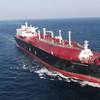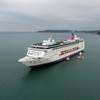FloScan, Krill Systems Fuel Savings for Workboats
Accuracy, reliability and durability are the critical elements in determining a vessel's fuel consumption under varying load and sea conditions. FloScan says its direct flow measurement systems are more accurate than algorithm-based techniques. Models are available for all makes of marine diesel engines up to 6000 hp in tugboats and workboats of all kinds for applications including propulsion engines, gensets, bow thrusters and other diesel-powered systems.
Krill Systems, a provider of integrated onboard and remote vessel monitoring systems for yachts and commercial vessels, recently introduced their SmartTug software, a PC based software system that improves vessel efficiency and data communication in a highly competitive and cost conscious industry. The combination of FloScan and Krill Systems makes for a powerful fleet management tool to monitor and control fuel costs.
FloScan supplies its fuel flow data to a NMEA 2000 Network which the SmartTug software displays for the vessel operator to maximize fuel economy. The same fuel usage data is also captured as an Excel spreadsheet and transmitted back to headquarters via the internet for analysis.
Krill’s SmartTug Software not only displays FloScan’s real-time fuel flow data, but with the power of our SQL database captains can now record the start and stop points of a trip and instantly transmit all cost-related data directly to operation headquarters for immediate analysis. It provides the ability to determine profitability per job quickly and accurately.
Krill Systems software combines data from a variety of onboard systems including GPS, digital engine data and the absolutely critical information provided by the FloScan components—real-time and overall fuel consumption. It incorporates the data into a series of pull down windows that can display current or historical operating data from any phase of a trip. It can provide complete trip information upon completion; compute the actual operational cost of a trip; detect inefficient use of engines and generators; eliminate paperwork and manual data entry; spot potential maintenance issues before they become costly service issues while monitoring and recording all onboard equipment for optimal performance.
All of these functions hinge on the accuracy of the fuel monitoring components. For that critical data, Krill relies on the proven accuracy of FloScan direct-flow fuel sensors and their flexible NMEA 2000 data interface. The added benefit of having immediate access to continuous, accurate fuel flow data means the captain can easily adjust engine RPM to achieve the most fuel efficient speed for any load and sea conditions. In most cases significant fuel savings, and resulting cost reductions, are achieved.
www.floscan.com
www.krillsystems.com














